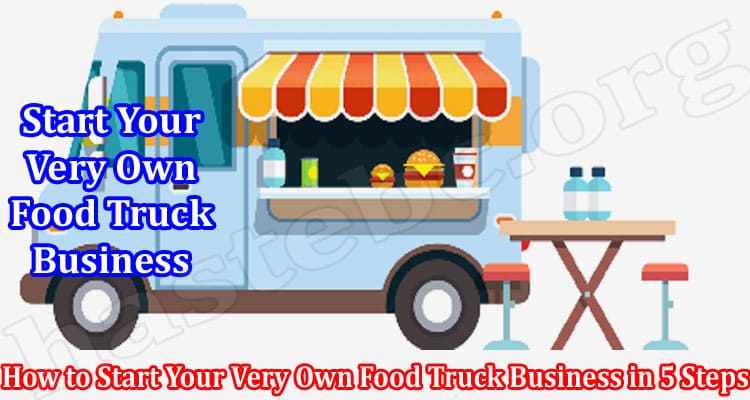The popularity of food trucks has risen so quickly in the course of the last several years that some towns are today known for their virtuous food truck scene. What once used to be regarded as ‘food risk’ has suddenly become a foodie trend all over the world.
In the last ten years, the food truck industry has risen and it just gets better and better. Today, in the U.S there are over 4,000 food trucks, according to Economist, and the industry continues to grow, with an annual growth rate of 7.5%.
Because of a change in consumer food habits, there’s great demand for first-rate food at cheap prices, a thing that food trucks are especially suitable to offer. And because the fact that food trucks enable business owners to enter the food business at a lower cost than starting a conventional restaurant means there are more appealing food trucks than ever before.
So, if you want to know how to open a food truck business on your own, check out our guide below to help you get started.
Research the Local Food Truck Scene
Prior to committing to opening a food truck business, you’ll need to ensure that your idea will stand out in the current market. Begin with researching your area for the following:
- Local food truck businesses and concepts;
- Local restaurant concepts;
- The average population of the community;
- Available space where food trucks can park and sell their food;
- Active street times where passengers may become customers;
- Make sure to discover if there is a demand in your area for the food truck concept you are interested in offering.
Choose a Concept
You’ll want to indulge the interests of the population of your town with your food truck. But, you’ll also want to share your passion and interests through your food business. Once you’re done with your initial research, select a food truck concept that combines your unique style with the interests of the local community. From here you can choose a concept, name, and logo that will adequately reflect the core of your business.
Create a Food Truck Business Plan
When you have your concept established, it’s time to write your food truck business plan. Even though you may want to get your food truck functioning as fast as possible, a well-planned business plan will definitely help you in the long term. By conceiving your long-term plan ahead of schedule, you’ll have a direction to follow as you go throughout the process of opening your food truck.
That is also a document you would submit to potential investors, so arranging your vision and financial plan thoroughly is important. The portions of your food truck business plan must incorporate the following:
- An executive synopsis;
- A market analysis;
- An organization and management plan;
- A portfolio of products;
- Sales and advertising strategy;
- Financial projections.
Obtain Food Truck Licenses and Permits
Once you’ve created a business plan, you’ll need to find out what licenses and permits are needed to open a food truck. Food truck licenses and permits may vary from state to state and even from town to town, so you need to check with your domestic jurisdiction such as the Health Department, Chamber of Commerce, and the Department of Motor Vehicles to understand their requirements.
You will need some of the standard licenses required when opening a restaurant: Employer Identification Number, business license, food service license, and employee health permit. In addition, you will need the following food truck special permit as well: zoning and parking permit and mobile food facility permit. When you are in contact with your Department of Motor Vehicles to establish your registration and parking permits, ensure to ask about parking limitations and restrictions in your area, as well as whether overnight parking is allowed.
Get a Food Truck
Taking into account that the biggest portion of your startup costs will go to your truck, it’s crucial to choose one that will serve your business properly. There are several aspects to consider when picking the vehicle that will be your food truck, like:
- Determining if you want to lease or own your vehicle;
- Determining if you should get a new or used vehicle;
- Finding a reliable food truck dealer;
- Choosing what customizations will be necessary for your truck.
Furthermore, with a vehicle in your possession, the following step is to equip your space with food truck gear and supplies. Those items will be crucial for preparing your food and maintaining your truck operating successfully. Once you obtain a food truck vehicle, you might need to complete your inspections and permits for becoming street legal.
Final Words
Opening your own food truck, just like any other type of business, might definitely be challenging. However, if you follow the steps above you’ll be on the path toward establishing a successful business. Good luck!

Caroline is a dedicated writer with a passion for keeping readers informed. Specializing in providing the latest news updates and unbiased reviews, she strives to deliver accurate and insightful content. With a keen eye for detail and a commitment to journalistic integrity, Caroline ensures that her readers are always well-informed. Stay tuned for her latest articles to stay up-to-date on current events and trends.




